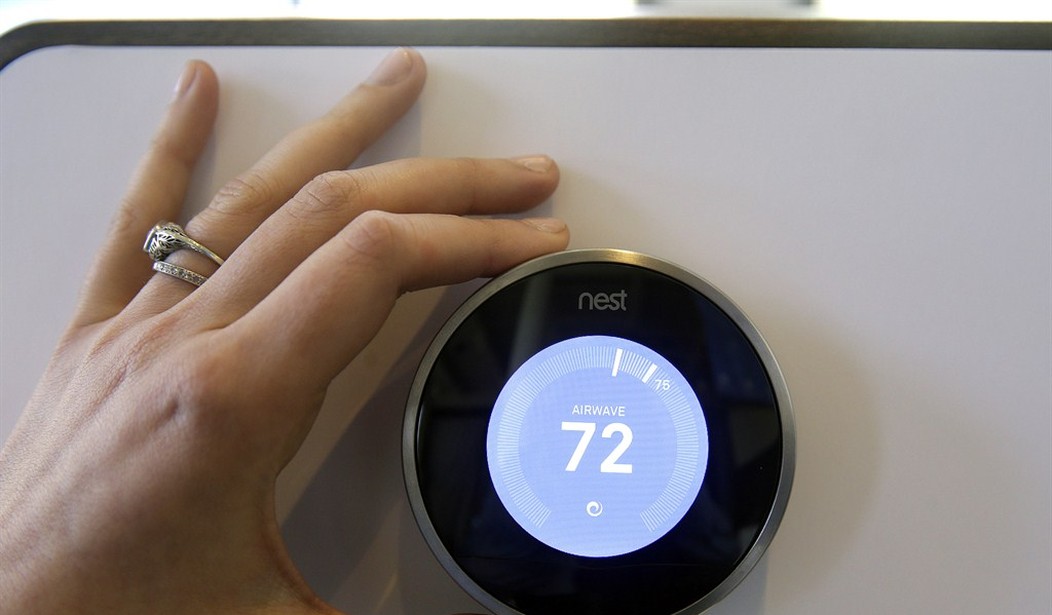As the global energy crisis continues to heat up (including here in the United States), we’ve covered a variety of stories of how governments are moving to restrict energy use by consumers. Some countries have even passed laws regulating what temperatures public and private sector buildings can set their air conditioning and heating at. Some analysts have scoffed at the idea, saying that monitoring and enforcing such laws would be all but impossible while angering voters over such draconian measures. But thanks to a combination of governmental demands and the creeping dominance of big tech and the Internet of Things, many residents in Denver, Colorado learned this week just how little control we will have over our own home environment going forward. Renters and homeowners with newer heating and airconditioning systems in the Mile High City found that their thermostats had been locked out of the ability to set the temperature lower than the mid-eighties. (The Denver Channel)
During the dog days of summer, it’s important to keep your home cool. But when thousands of Xcel customers in Colorado tried adjusting their thermostats Tuesday, they learned they had no control over the temperatures in their own homes.
Temperatures climbed into the 90s Tuesday, which is why Tony Talarico tried to crank up the air conditioning in his partner’s Arvada home.
“I mean, it was 90 out, and it was right during the peak period,” Talarico said. “It was hot.”
That’s when he saw a message on the thermostat stating the temperature was locked due to an “energy emergency.”
People attempting to lower the temperature setting on newer heating and cooling systems received a very “Big Brother” style message on their digital displays. It read (in part), “Temperature locked temporarily due to energy emergency. Due to a rare energy emergency that may affect the local energy grid, your temperature slider has been changed… since 4:00 pm.” The message went on to explain that the override was a result of the user’s participation in the “Colorado AC Rewards Program.”
The Colorado AC Rewards Program is a voluntary (for now) arrangement where consumers can qualify for cash bonuses if they don’t use as much energy for heating and air conditioning. But it had previously only been used to issue alerts and could be manually overridden. This was the first time that Big Brother went in and disabled local control of the system.
For those seeing this story as “no big deal,” I would strongly suggest you pay attention to what’s happening. Through a combination of technologies, specifically the Internet of Things, we have increasingly tied more and more of our appliances and other electronic devices into a centralized communications system. This is supposedly done as a convenience, such as refrigerators that can issue a reminder when you’re running low on eggs, or in some cases, even place orders for groceries. But opening up everything in our homes to external monitoring obviously opens the door to external control. And that’s what’s happening in Denver this week.
Doesn’t this sound like a warning bell signaling a dystopian future that previously only existed in science fiction movies? It certainly does to me. Now stop and consider how much control the government is seeking to exert over nearly every aspect of your life these days. That job becomes a lot easier when Big Tech turns over the reins of these systems to Big Brother. The government is already telling people when they’re using too much water in California and other locations experiencing drought conditions. If you are a homeowner or rental property manager and you have a newer water meter installed by the utility company, you will notice that it has been “smartened” so that readings can be taken remotely.
Would you be shocked to learn that it can also regulate the flow of water? So if you are using more than the government believes is “acceptable,” someone can throttle it back and you won’t be able to take a shower or fill up your water pitcher. If you think that day isn’t on the horizon (and likely much closer than any of us would like to believe), I admire your sunny attitude but I also think you’re being rather unrealistic. That’s the future and the future is here.








Join the conversation as a VIP Member